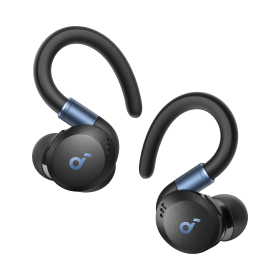Is 6 Hours of Sleep Enough? Optimal Sleep Needs & Tips for Better Rest
You’ve probably asked yourself at some point, is 6 hours of sleep enough? Maybe you’re juggling work, study, family, and social life, and six hours is all you can manage. Or perhaps you’ve heard that some people function just fine with minimal sleep and wonder if you could do the same.
The truth is, your body and brain need a certain amount of rest to function at their best, and for most people, six hours is not enough. In this guide, we’ll break down the average sleep time different age groups need, what happens if you’re not getting enough, and some simple ways to improve your sleep quality.

What Are the Stages of Sleep?
Human sleep cycles consist of four stages — a single phase of rapid eye movement (REM) *sleep and three phases of non-REM (NREM) sleep. These stages are classified through brain activity monitoring, revealing specific and recognisable patterns for each stage.

| Sleep Stage | Type of Sleep | Other Name(s) | Average Length |
|---|---|---|---|
| Stage 1 | NREM | N1 | 1 to 7 minutes |
| Stage 2 | NREM | N2 | 10 to 25 minutes |
| Stage 3 | NREM | N3, slow-wave sleep (SWS), delta sleep, deep sleep | 20 to 40 minutes |
| Stage 4 | REM | REM sleep | 10 to 60 minutes |
Infographic: Sleep Foundation

What Is REM Sleep?
“ Rapid eye movement (REM) sleep is one of four stages of sleep. During REM sleep, many aspects of brain and body activity ramp up, at times almost to the same level as when you’re awake ”
Jay Vera SummerAverage Sleep Required for Different Age Groups
Is sleeping for 6 hours enough? The short answer is no for most people. According to the Joint Consensus Statement of the American Academy of Sleep Medicine and Sleep Research Society, healthy adults need 7 to 9 hours of sleep per nightto maintain optimal physical and mental health.
Sure, some people say they can get by on just six hours of sleep, and maybe you’ve managed to power through the day on minimal rest before. But research suggests that regularly getting less than the recommended amount can lead to decreased concentration, a weakened immune system, and a higher risk of chronic health issues.
Actually, the average hours of sleep we need can change quite a bit throughout life, and it also varies slightly from person to person. But generally, experts at the National Sleep Foundation recommend the following daily sleep ranges for optimal health:
|
Age Group |
Recommended Sleep Duration |
|
Newborns (0-3 months) |
14-17 hours |
|
Infants (4-12 months) |
12-16 hours (including naps) |
|
Toddlers (1-2 years) |
11-14 hours (including naps) |
|
Preschoolers (3-5 years) |
10-13 hours (including naps) |
|
School-age children (6-12 years) |
9-12 hours |
|
Teenagers (13-18 years) |
8-10 hours |
|
Adults (18-64 years) |
7-9 hours |
|
Seniors (65+ years) |
7-8 hours |
Infographic:Per National Sleep Foundation guidelines
It’s clear that as we age, our sleep needs gradually decrease, but adults still require at least seven hours to function optimally. For those asking, is 6 hours sleep enough for a student, the answer is a definite no—especially if you’re a teenager still in the middle of growing and developing!

The Impact of 6 Hours of Sleep
You might think you can get by on six hours of sleep, especially if you feel “fine” in the morning after a cup of coffee. But what’s happening inside your body tells a different story. When you consistently get less than the recommended 7 to 9 hours of sleep, your body and mind start to suffer.
Short-Term Effects of Only 6 Hours of Sleep
Even one night of inadequate sleep can leave you feeling sluggish and unfocused. But when you make a habit of sleeping just six hours a night, the effects add up quickly:
- Decreased Focus and Productivity: Your brain needs sleep to process and retain information. Without enough rest, you’ll have trouble concentrating, making decisions, and solving problems.
- Mood Changes: Lack of sleep makes you more irritable, emotional, and prone to stress. It also increases anxiety and can contribute to feelings of depression over time.
- Weakened Immune System: Sleep helps your body fight off infections. With just six hours of sleep, your immune system weakens, making you more susceptible to colds, flu, and other illnesses.
- Increased Hunger and Cravings: Sleep deprivation disrupts hunger-regulating hormones, leading to stronger cravings for unhealthy foods and an increased risk of weight gain.
- Suffered Appearance:Dark circles? Dull skin? Yep-poor sleep accelerates aging and reduces collagen production, leaving your skin looking tired.
Long-Term Health Risks of Sleeping Only 6 Hours
If you’re consistently getting only six hours of sleep, your risk for serious health conditions increases. Research has linked chronic sleep deprivation to:
- Heart Disease and High Blood Pressure: Poor sleep can elevate your blood pressure and increase your risk of heart disease and stroke.
- Diabetes and Weight Gain: Sleep affects insulin sensitivity and metabolism. Less sleep can lead to higher blood sugar levels and an increased risk of type 2 diabetes.
- Cognitive Decline and Memory Loss: Over time, lack of sleep can impair brain function, increasing the risk of Alzheimer’s disease and other neurodegenerative conditions.
- Shortened Lifespan: Studies show that people who consistently sleep less than seven hours a night tend to have a shorter life expectancy.
How to Get Enough Sleep
Now that you know how much sleep is enough, it’s not just about hitting a specific number of hours, it’s about ensuring quality rest so your body and mind can recover. Here are some practical tips to help you get the recommended 7 to 9 hours of restful sleep every night:
Stick to a Consistent Sleep Schedule
Your body operates on an internal clock, known as the circadian rhythm, which regulates sleep and wake cycles. Going to bed and waking up at the same time every day—even on weekends—helps your body establish a stable sleep pattern. If you’re used to staying up late, try adjusting your bedtime by 15 to 30 minutes earlier each night until you reach your ideal sleep duration.
Create a Relaxing Nighttime Routine
A bedtime routine signals to your brain that it’s time to wind down. Activities like reading a book, taking a warm shower, practicing deep breathing, or stretching can help you relax before bed. Avoid screens at least 30-60 minutes before sleep, as blue light from phones, tablets, and TVs can suppress melatonin—the hormone that helps you sleep.
Optimize Your Sleep Environment
Your bedroom should be a sleep-friendly sanctuary—cool, dark, and quiet. Here’s how to make it ideal for rest:
- Keep it cool: The best sleep temperature is around 60-67°F (15-19°C).
- Block out light: Use blackout curtains or a sleep mask to keep your room dark.
- Reduce noise: If traffic sounds, noisy neighbors, or a snoring partner keeps you awake, consider using noise-blocking earbuds or a white noise machine to create a peaceful sound environment.
For those looking for the best sleep earbuds that block noise effectively while remaining comfortable for all-night wear, the soundcore Sleep A30 is a fantastic choice. These earbuds feature a 4-Point Noise Masking System with Twin-Seal ear tips for strong passive noise blocking. Combined with 3-Stage Snore Masking and Smart Active Noise Cancelling Control, you can trust them to keep unwanted noise at bay, ensuring you stay undisturbed throughout the night.
Made forside sleepers, these earbuds are soft, ergonomic, and designed for pressure-free comfort.Whether you prefer pre-loaded soothing sounds or your own custom sleep soundtrack via Bluetooth 5.3, these earbuds help create the perfect, uninterrupted sleep experience. Plus, a built-in MEMS sensor tracks your movement and sleeping positions, providing valuable insights into your sleep quality.
Watch What You Eat and Drink Before Bed
What you consume in the evening can impact your sleep quality. Avoid caffeine, alcohol, and heavy meals too close to bedtime, as they can interfere with deep sleep. If you need a snack before bed, go for something light like a banana, yogurt, or almonds, which contain sleep-promoting nutrients.
Manage Stress and Anxiety
Stress is one of the biggest sleep disruptors. If your mind races at night, try relaxation techniques like:
- Journaling: Write down thoughts or to-do lists to clear your mind.
- Meditation or breathing exercises: Slow, deep breathing can calm your nervous system.
Get Daily Sunlight and Exercise
Your body’s natural sleep cycle is influenced by light exposure. Getting morning sunlight helps regulate melatonin production and improves your sleep-wake cycle. Regular exercise—especially in the morning or afternoon—also contributes to deeper sleep. Just avoid intense workouts too close to bedtime, as they can be too stimulating.
Conclusion
So, is 6 hours of sleep enough? For most people, not really. Research shows that adults need around 7-9 hours of quality sleep each night—teenagers even more. While you might be able to push through on less sleep, your body and brain won’t be performing at their best. Over time, sleep deprivation can leave you feeling drained, scatter your focus, mess with your mood, and even take a toll on your long-term health.
If you’re struggling to get enough rest, small lifestyle changes, such as following a consistent sleep schedule, improving your bedtime routine, or using sleep earbuds to block out noise disturbance, can make a big difference. Start prioritizing your sleep tonight!
FAQs
Will I be okay with 6 hours of sleep?
For most people, 6 hours of sleep is not enough to stay healthy and function at their best. Experts recommend 7 to 9 hours for adults to support brain function, energy levels, and overall well-being. While you might feel “okay” temporarily, consistently sleeping only 6 hours can lead to fatigue, poor concentration, weakened immunity, and an increased risk of chronic conditions such as heart disease and diabetes.
Can my body work on 6 hours of sleep?
Your body can adapt to 6 hours temporarily, but it won’t function optimally in the long run. While some people may feel okay with limited sleep, research shows that most adults need at least 7 to 9 hours for optimal health, focus, and energy. Consistently getting only 6 hours can lead to fatigue, reduced concentration, weakened immunity, and long-term health risks.
What’s the bare minimum of sleep?
The bare minimum of sleep varies by age and individual needs, but most adults need at least 6 hours to function short-term. However, experts recommend 7–9 hours for optimal health. Regularly getting less than 6 hours can lead to cognitive issues and health risks.




























































